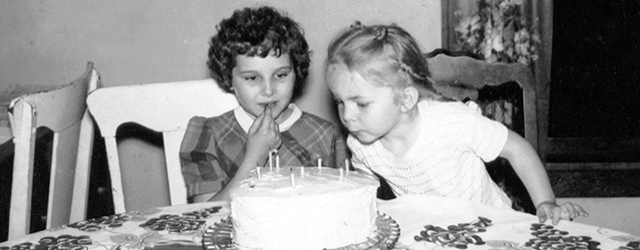Like It Or Not, You’re Always Living In The Past

What’s happening right now? I mean right this split second.
Sorry, but whatever you answered, it’s wrong. How do I know? Because it’s impossible for our conscious minds to know what is happening right now.
The reason for this is simple, and irrefutable. And the implications, for most people, are truly shocking.
The fact is, it takes time for things to move. In a very real sense, time and change are the same thing. If everything in the universe were to somehow stop and stand completely still, then start moving again along previous trajectories at previous speeds, it would be impossible to say for how long the universe had been frozen. In fact, we would not be able to notice that anything had stopped at all. In a very real sense, the world would have stopped for no time whatsoever.
So everything that happens in the world takes time. Which means it takes time for light to reach your eyes, for molecules to reach your nose, for waves in the air to reach your ears. More importantly, it takes time for the resulting nerve impulses to move through your brain until they reach the areas that generate your conscious experience of the world.
And these impulses don’t move in a straight line either. In your visual cortex, for example, these neural reactions run in circles, moving forward, then cascading back again, then resurging forward, in a lightning-fast process of approximating, reapproximating, and reapproximating again what it is your are seeing. It’s something like a split-second version of what our conscious minds do when we figure out a sudoku puzzle, making guesses, testing theories, abandoning dead leads, filling in blanks, until everything locks into place and voilà, the grid is complete.
Sometimes our brains make the wrong guess, and for a moment we are convinced that we see one thing, when suddenly — usually with a slight jolt of the nerves — we realize that we’re looking at something very different.
I recall rounding a curve on a rural highway one moonless night to see an oncoming truck headed straight for me, and nearly ran off the road until my brain figured out that I was looking at a pair of lamps flanking the end of a driveway. But for a moment, I had actually seen the truck — grill, tires, windshield and all. My brain, in its rush to figure out what was going on, had come to the wrong conclusion and had shown me the truck, which wasn’t there. In that case, the jolt of nerves was more than slight.
But here’s the thing. Even when we’re right about what we experience, it takes time for our brains to create the conscious world inside our heads. About half a second.
And this is true even for what’s going on in our own bodies. Our brains know, for example, that the nerves running to our fingers are shorter than the ones running to our toes. So if the bits of our brain connected to those nerves are stimulated at the same time, our brain assumes that the signal which it believes is coming from the toes must have traveled a longer distance — and therefore taken a longer time to arrive — than the one which it believes is coming from the fingers, and we experience the sensation in the foot before the sensation in the hand. (The brain assumes that nobody is directly stimulating our brain, therefore we experience it as though someone had prodded our extremities.)
In other words, reality is on time-delay. We can only experience the world as it was, never as it is.
So, you may wonder, how do we do time-sensitive stuff like drive in heavy traffic or hit a baseball? The answer is, we don’t consciously do these things at all.
Think about it… what does it mean to learn to drive, or to hit a baseball? When we start out, we’re doing it consciously, which is why we can’t really do it. The entire process of learning is a process of allowing our brains to figure out how to do it unconsciously. Your unconscious mind drives your car and makes all the real-time decisions. Every one of them.
Your conscious mind is merely served up the illusion that it is in control.
Everything you do, every decision you make, has already taken place by the time you are aware of it. This has been tested. By observing brain activity, researchers can know what choice you have made before you think you’ve made it. Everything you think you experience, even the motions of your own body, your moods, your decisions, they are all in the past by the time your brain renders them as a conscious experience.
Your conscious self, the thing you think of as you, is just along for the ride after all.
That fact may give you a jolt of the nerves at first. But it gets easier with time.
Image courtesy of Ken W. Kiser
Paul Thomas Zenki is an essayist, ghostwriter, copywriter, marketer, songwriter, and consultant living in Athens, GA.